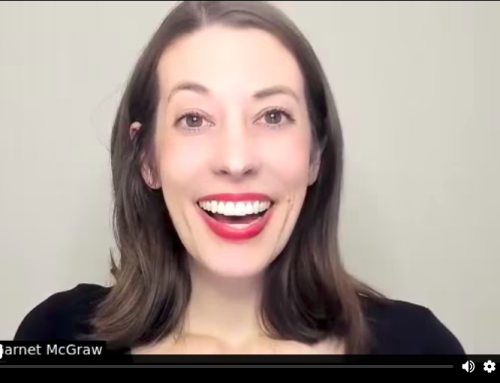Intellectual assent is easy.
Being people of peace? Shifting from self-blame and people-pleasing to compassion and honesty? Sure thing.
But putting these things into practice when we’re angry and upset? That’s another story.
Luckily, life continually offers us opportunities to learn … which are often disguised as conflicts.
***
My dear friend Tam recently lent me a copy of Nonviolent Communication: A Language of Life.
Nonviolent communication (NVC) is, to quote author Marshall Rosenberg, “a way of communicating that leads us to give from the heart.” As I read, one section stood out for me. In it, Rosenberg posits that we have four options when it comes to receiving negative messages. We can:
A) Blame ourselves
B) Blame others
C) Sense our own feelings and needs
D) Sense others’ feelings and needs
This may sound simple, and it is … but how many of us actually choose C or D? I’ve chosen (mostly) A or B, with an emphasis on A. Shifting away from self-blame is something I’ve longed to do … but until recently, I didn’t have an alternate behavior to shift to. And perhaps that’s the most powerful thing that NVC — or any system for loving communication– has to offer: a viable alternative to blame.
So I decided that I’d try for C and D. And Life gave me the perfect ‘road test.’
***
One day, an older friend and trusted mentor — we’ll call her Trudy — was giving me a ride. She was telling me about her devotions and Bible reading. I was listening, and thinking, This seems a little … random.
Then she paused. Uh-oh, I thought, without knowing why.
Then Trudy said, “Do you read your Bible?”
Ahh. Not random after all.
I must pause the story here and say that the question was meant as a loving check-in. Trudy is an amazing woman of faith, and I respect her tremendously. Yet this question was a ‘negative message’ for me.
You see, I grew up in a very strict church. (That’s a whole post series waiting to happen.) That church gave me so many beautiful gifts — like best friends and summer camps and diverse congregations and surrogate family members — and a lot of legalistic hang-ups, too.
Over the years, I’ve read the Bible with love and attention and devotion … and I’ve read the Bible for all the wrong reasons, like guilt and fear of punishment.
In times past, if I skipped my morning reading, I used to walk around jittery, because I had the sense that — any second now — an angry God would start throwing lightening bolts at me. I’ve filled out entire devotional books — 365 days of written exercises — that I didn’t even like. Books that weren’t well-written or interesting. I did these things because I thought I had to, because I couldn’t imagine another way of living out my faith.
Nowadays, I do meditate on Biblical scriptures … and I read Sue Monk Kidd and Charlotte Bronte and Madeleine L’Engle and Glennon Melton. And I write and pray and laugh with friends and rest and do yoga and apologize and forgive and walk hand in hand with my husband into a cold creek on a hot day. These things are all a part of my spiritual practice. My spiritual practice is, well, my life: a work in progress.
***
Given all this, the question, “Do you read your Bible?” seemed like code for: “Is Caroline jumping through the ‘right’ spiritual hoops? Or do I need to worry about her?”
As such, my initial (internal) reaction was to get angry and defensive and fearful, as though Trudy’s love and approval hinged on my answer. I considered quoting Biblical passages to justify myself in her eyes.
Miraculously, though, I didn’t give voice to any of that. Instead, I thought, What am I feeling and needing? And what about her?
With those questions in mind, I took a breath and said, “When you ask me that, I feel uncomfortable, because I’m thinking that you’re trying to ‘score’ me spiritually. That said, it sounds like you’re feeling concerned, needing reassurance that I prioritize quiet time with God. If so, I assure you that I do.”
Later, I expanded on the reply in my journal: “I felt defensive because I needed to be respected as an adult, with my own spiritual practice, even if it sometimes differs from Trudy’s. I felt afraid because I don’t want to fall back into the people-pleasing from which I’ve worked so hard to break free.”
In our actual conversation, however, I just stated my feeling and her (possible) need. When I mentioned reassurance, Trudy nodded. Yes, she needed that.
Suddenly, I felt less defensive. I saw Trudy not as a judge, but as a person in need. And that was revolutionary. That was a game-changer.
Once I saw Trudy that way, I felt free. So much so that I did end up sharing some verses with her, verses about radical love and acceptance and the divine feminine. And what could have devolved into an argument became a positive interaction.
***
I have a long way to go when it comes to communicating in this way. But so far, I’ve found it exhilarating. For so long, I’ve wanted a way to express my own truth and simultaneously empathize with others. And as I hugged Trudy goodbye, I knew I’d taken a step in the right direction.
And I thanked Life for giving me the chance to try.
***
How do you diffuse difficult situations? Join the conversation in the comments!
***
Invite friends to receive posts via email, along with a FREE copy of Your Creed of Care: How To Dig For Treasure In People (Without Getting Buried Alive). [Click to Tweet this.]
Share This:
Comments
Related Posts





